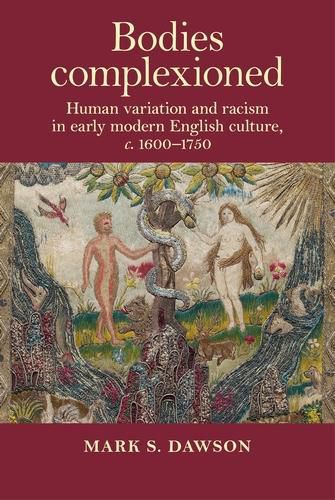Readings Newsletter
Become a Readings Member to make your shopping experience even easier.
Sign in or sign up for free!
You’re not far away from qualifying for FREE standard shipping within Australia
You’ve qualified for FREE standard shipping within Australia
The cart is loading…






Bodily contrasts - from the colour of hair, eyes and skin to the shape of faces and skeletons - allowed the English of the seventeenth and early eighteenth centuries to discriminate systematically among themselves and against non-Anglophone groups. Making use of an array of sources, this book examines how early modern English people understood bodily difference. It demonstrates that individuals’ distinctive features were considered innate, even as discrete populations were believed to have characteristics in common, and challenges the idea that the humoral theory of bodily composition was incompatible with visceral inequality or racism. While ‘race’ had not assumed its modern valence, and ‘racial’ ideologies were still to come, such typecasting nonetheless had mundane, lasting consequences. Grounded in humoral physiology, and Christian universalism notwithstanding, bodily prejudices inflected social stratification, domestic politics, sectarian division and international relations. – .
$9.00 standard shipping within Australia
FREE standard shipping within Australia for orders over $100.00
Express & International shipping calculated at checkout
Bodily contrasts - from the colour of hair, eyes and skin to the shape of faces and skeletons - allowed the English of the seventeenth and early eighteenth centuries to discriminate systematically among themselves and against non-Anglophone groups. Making use of an array of sources, this book examines how early modern English people understood bodily difference. It demonstrates that individuals’ distinctive features were considered innate, even as discrete populations were believed to have characteristics in common, and challenges the idea that the humoral theory of bodily composition was incompatible with visceral inequality or racism. While ‘race’ had not assumed its modern valence, and ‘racial’ ideologies were still to come, such typecasting nonetheless had mundane, lasting consequences. Grounded in humoral physiology, and Christian universalism notwithstanding, bodily prejudices inflected social stratification, domestic politics, sectarian division and international relations. – .